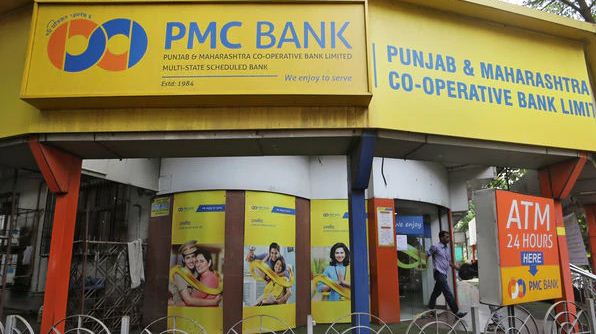The collapse of PMC Bank has left the Indian banking sector with many questions over its regulatory framework, audit reports and the vigilance of RBI. Punjab & Maharashtra Co-operative Bank Ltd (PMC Bank) is one of the largest co-operative banks in the country with a total deposit of 11,000 crore rupees and is on the verge of bankruptcy.
RBI, the regulatory authority for the banking industry, prohibited PMC Bank from doing any business for the next 6 months and capped depositors withdrawal at 1,000 rupees which were later increased to 10,000 rupees.
PMC bank is a classic case of how shadow banks, with limited or no regulation, could be involved in such a large scale corruption. A few weeks ago, PMC bank looked in a very healthy financial position with 4 per cent NPA and 12 per cent Credit Adequacy Ratio. But, the NPA of the bank suddenly rose from 4 per cent to 77 per cent with just one disclosure.
Housing Development and Infrastructure Limited (HDIL), a Mumbai based real estate company owned by Rakesh Kumar Wadhawan accounted for 73 per cent loan exposure to PMC Bank. Such high exposure to a single company or even to a single sector is against RBI norms.
However, the Wadhawan family, which has a controlling stake in PMC Bank, placed its own people in the management of PMC and siphoned off 73 per cent of total deposits as loan. The Wadhawan family has been associated with the PMC bank since the mid-1980s and rescued it from bankruptcy many times in 1990s and early 2000s. But the growing influence of Wadhawan’s over PMC resulted in almost 60 per cent of the bank’s total business happening with the group.
When HDIL went bankrupt due to the failure of its projects, the direct influence of this was witnessed in the rise in NPA of PMC Bank. Today, almost all money of depositors is at stake given HDIL’s inability to pay back.
The PMC case raises valid questions over RBI’s regulatory capabilities and accountancy practices in the country as the PMC fraud culminated in last six to seven years but in annual audit reports, everything was fine.
In fact, PMC Bank’s audit firm ‘Lakdawala & Co’ office was found to be locked and does not even have a nameplate. “Brajesh Mishra of Zee News, however, tracked down the firm’s office address, only to find it locked and located in a housing society in Borivali with no board or nameplate to indicate its existence,” said a report by Moneylife.
The PMC bank fraud also gives us a chance to look at the politician, co-operative bank, sugar mill, and private college nexus in Maharashtra. In the Western state, almost every politician, irrespective of the party has interest in co-operative banks as well as owns sugar mill and colleges. Few politicians like Ajit Pawar of NCP preside over the board of many co-operative banks at the same time. The control of co-op banks gives indirect control over electorates as the farmers need credit to carry out farming activities, and they depend on co-ops for this.
The politicians in Maharashtra have used co-operatives banks as a tool to control the electorates. In the last few years, the Devendra Fadnavis government implemented few reforms to clean up the co-operative banks, but the impact of these reforms is yet to be seen. As these banks are jointly regulated by RBI and state governments, there is ambiguity over the regulatory powers. The co-operative banks need to go massive cleanup drive to break the unholy nexus.
